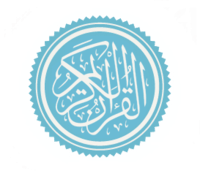Mus'haf
| Quran |
|---|
 |
|

A mus'haf (Arabic: مصحف, Arabic pronunciation: [ˈmʊsˤħaf] with the ṣ and ḥ as two separate consonants, not *mʊʃaf) is a codex or collection of sheets (sahifah, see below). The Quran, which Muslims believe to have been revealed at various times and in various ways during the 23-year period at the end of Muhammad's life, was collected into a codex under the third Caliph, Uthman ibn Affan.[1]
The Islamic term al-Qur’ān means 'the Recitation', denoting its content. When referring to the physical bound volume, some use the term mushaf.
The Quran refers to itself as kitab, The word mus'haf isn't mentioned in the Quran however its plural "suhuf" (from the root "sahifa" from which mus'haf also originates) is mentioned in several verses.[2] Noting this, some scholars have argued that the Quran does not present itself as a "book", which implies it is finished and complete, so much as a "scripture", something written or communicated over time, which gives it more dynamism and life. The Quran speaks of itself as having been a kitab even before it was put into writing.[3]
The Word Suhuf is mentioned in the following verses of the Quran; 20.133, 87.18, 87.19, 53.36, 80.13, 98.2, 74.52, 81.10.
Al-Islam.org, a shia website writes:
| “ | Mus'haf" refers to a collection of "Sahifa" which is singular for "page".
The literal meaning of mus'haf is "The manuscript bound between two boards". In those days they used to write on leather and other materials. They either rolled the writings -- what is known as scroll in English. Or they kept the separable sheets and bound them together, in what could be called as "mus'haf", a book in today's terms. The equivalent to the word book "kitab" used to (and still is) refer to either a letter (e.g. of correspondence) or to a document that was written down or recorded. The Arabic word for wrote "kataba" is a derivative of the same word. Although the Quran is commonly called a "mus'haf" today, perhaps referring to its "collection" after it was dispersed. Quran is a mus'haf (book), but any mus'haf (book) is not necessarily the Quran[4] |
” |
See also
References
- ↑ Wheller, Brannon M. Prophets in the Quran: An Introduction to the Quran and Muslim Exegesis, Continuum Books, 2002, p. 5.
- ↑ http://www.quranicstudies.com/quran/the-difference-between-quran-and-mushaf/
- ↑ Madigan, Daniel. The Qur'an's Self-Image: Writing and Authority in Islam's Scripture, Princeton University Press, 2001.
- ↑ The Book of Fatimah (AS)
External links
- ethiopiaquran
- The Difference Between "Qur'an" and "Mushaf"

